Book Reviews by Genre: Dystopian
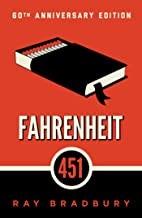
Fahrenheit 451 by Ray Bradbury is a dystopian novel about Guy Montag; a firefighter in a world that has illegalized books. His occupation results in burning books that are found in citizens' homes and after witnessing a woman that was burned with her books after refusing to leave them, Guy has a disturbing realization of his society. The progressive plot gave me the excitement of coming home and reading while the ending left me in a jaw dropping manner. I thought that the book was amazing due to the mysterious plot and the relations it has to our world today. I had to read this for school and thought it was going to be boring, but in the long run it became one of my most favorite books I have ever read and I would definitely recommend it for readers who love dystopian novels. Reviewer Grade: 9
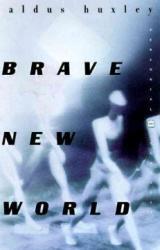
Brave New World by Aldous Huxley is about a futuristic society that revolves around conditioned people. People are made by machines that condition them emotionally and physically for a certain job. Since people are conditioned to perform certain tasks they are happy and content. This book follows Bernard who actively questions the system and is unhappy. Throughout the book, it brings up the question of whether it is better to have an orderly and perfect society or for people to have emotions and free will. Aldous Huxley does a wonderful job of building a world where individuality is erased. The book was an interesting read and would give it a 3 out of 5 stars.
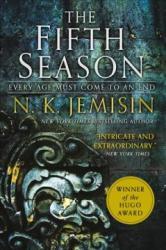
In the post-apocalyptic Stillness, where nothing is Still, N. K. Jemisin creates a cast of interconnected characters, an intriguing plot, and a fantasy world that masterfully entails factions, a magic system, and history that is weaved into the current time of the book. Jemisin goes through three different perspectives, but still maintains a sense of total engagement and interest for the reader. We follow the stories of these three, and with each learn how much of a curse each blessing can be. This series is very real and doesn't shy away from concepts that would be expected from societies in such a situation, but at the same time, is surprising in a number of ways. I really enjoyed this book; I gasped internally several times throughout, from plot twists, reveals, and realizations, and enjoyed almost every part of The Fifth Season.
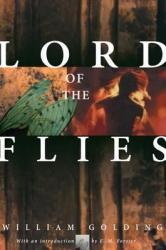
A group of boys crash on an uncharted island. The boys are left with no adult supervision, leaving them to survive on their own. They begin to create a form of order, but soon that order collapses and terror begins.
I had to read Lord of the Flies for school, but it exceeded my expectations. This book made me want to cry, stare at it and ponder what I had just read and throw it across the room all at the same time, but in the best way possible. This book will keep you on the edge of your seat and reading until the very end. There will be a character or characters that you can relate to and root for. This book is a little more on the violent side. I would definitely recommend it for an older audience. Even though classics are considered boring and bland, this one is definitely worth a try. It's an emotional roller coaster that you don't want to miss.
Reviewer Grade: 10
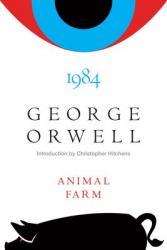
1984 by George Orwell is a phenomenal piece of dystopian literature that comments on the role of government and what freedom really is. The book follows the story of a lower ranking party member named Winston Smith who begins to defy the ideals of Ingsoc or "English Socialism" and the thought police. 1984 imagines what the world would have been like if the Axis powers in World War II had won/ if the war had never ended. I highly suggest this book be read along with Brave New World by Aldous Huxley because the juxtaposition between the two is fascinating. I recommend any reader who enjoys dystopian, philosophical, political, historical, or science fiction to read this book as it encapsulates all of those genres.
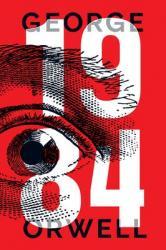
1984 by George Orwell is about a London where thought, speech, press is no longer free because it is all controlled by Big Brother and his Party. Every movement, gestor, spoke word is closely monitored by telescreens, hidden microphones, and cameras then reported to the Party. If you are found guilty of action or thought against the Party, you disappear. The Party controls everything. The protagonist, Winston Smith, a Party member who doubts the Party. The author does a fantastic job describing a place without freedom and the anxiety of living in it. Orwell makes the world come to life and makes you feel like it could happen. Personally, I feel like I could connect to the protagonist and the world. This book was quite unpredictable but easy to follow. All in all, It's a fantastic read, and I would recommend it with a 5 out of 5 stars.
Grade: 9
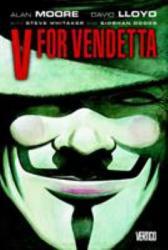
V for Vendetta follows V as he fights against an authoritarian government and trains a successor. The book questions the cost of losing art, literature, and beauty in an attempt to create complete control over society. The art adds another dimension to the story, and the colors used in V's house compared to the outside world emphasize the underlying message. V's character is captivating because he possesses such knowledge and culture yet brings destruction. This leads readers to consider the necessity of violence to preserve culture. V's mask holds similarities to Guy Fawkes', and certain actions between the two are also similar, adding historical parallels to the story. V's strong ideals and actions to back them up lead him to become the face of a revolution but at what cost?
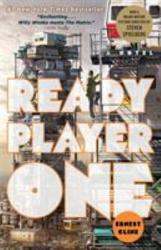
Ready Player One, a book by Ernest Cline, takes place in a dystopian future in 2045. The majority of the population spends most of their time inside a massive VR MMOSG, massively multiplayer online simulation game, called the Oasis. When the billionaire creator of the Oasis died, he left clues for an Easter Egg that he had hid in his game, and the first one who finds it gets his entire fortune. This story is about the adventure of Wade Watts, a kid from the Stacks in Columbus, Ohio, as he searches for that egg. This book is amazingly written, and you will be wanting to know what happens next as you read. You may have seen the movie, but the book is a masterpiece, the story is much richer, and definitely worth the read!
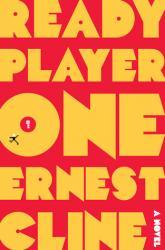
I was given Ready Player One for my birthday. I would suggest this book to readers interested in science fiction and immersive video games. The author writes with surprising detail, going through Wade's thought process and adding twist and turns at each chapter. The author makes semi-relatable characters, fighting to win the ultimate prize. The entire book speaks of the time, heart, and soul the author spent writing a fabulous book.
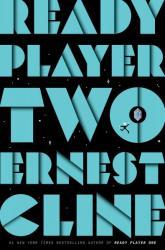
I received Ready Player Two as a gift. I would suggest this book to anyone who enjoyed the first book. Although this book is not as good as the first one, I enjoyed it immensely. Wade hunts down shards for a new Easter egg in the oasis. Wade's compelling character meets new people and gains a completely new quest. Ernest leads you on a journey you don't want to end.
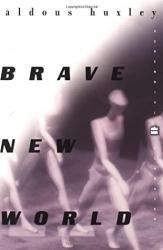
Brave New World is a classic dystopian novel, written in the early 1930s by Aldous Huxley. Set in a society in which humans are manufactured and programmed depending on their assigned social class, it addresses individualism, conformity, and the dangers of complete government control. Citizens in this dystopia frequently take a drug to subdue their emotions, living in a state of ignorance and 'bliss' as they go through the motions unquestioningly. In order to keep the system of manufacturing people running smoothly, certain things are considered taboo--such as literature, religion, and family--while what we typically consider unorthodox is commonplace in this society.
The story follow several central characters who don't completely fit in or believe there could be more to life than what they experience every day. Huxley takes readers to a 'Savage Camp' where John, the protagonist (whose ideals are completely different from everyone else's), is introduced, and the other characters experience an extreme contrast to their advanced and ordered society. Readers experience John's intense internal conflict as he attempts to find his place in the new world into which he is thrust; they also learn more about the ideology of the dystopia, and what goes on behind its 'perfect' facade.
I enjoyed most aspects of Brave New World, and would recommend it to dystopian readers who appreciate a deeper meaning. However, there were some parts of this novel that I found disturbing, as what's considered taboo is the opposite of how we view things in our world. Sometimes I had trouble connecting with the story emotionally, and I would've liked more specifics about how the dystopia came to be. But looking past the negatives, the themes Huxley brings up are very important, and even pertinent to society today. His characters have depth, the underlying themes make readers think, and overall it is an interesting concept of a future world with complete dictatorship. Brave New World is a classic that I believe everyone should read.
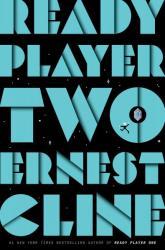
Ernest Cline has written another masterpiece. While Ready Player One could have remained a stand-alone novel, Ernest Cline has given us a better look into his dystopian universe with this sequel. After James Halliday posthumously releases another quest, The High Five must once again unite to solve all of the riddles. However, this time the stakes are higher as the lives of the majority of OASIS users are on the line. With adventures that include John Hughes movies, Prince, The Lord of the Rings, and many more pop-culture references, Ready Player Two is a thrilling action-packed adventure. I highly recommend this novel for any middle school or high school aged reader, or any lover of pop-culture from the later part of the previous century.
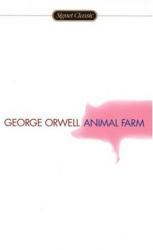
Animal Farm by George Orwell was published in 1945 16 years after Joseph Stalin came to power in the Soviet Union. The book chronicles the formation of the Soviet Union as well as major historical soviet events. The on twist, all Soviet leaders and classes of citizens are represented by farm animals! I love this book because the reader must infer who each animal represents. Once you have that figured out, there are many events in the book that can be tied to real-world events! I enjoyed this book a great deal and I would recommend it to anyone who has a desire to learn about Soviet history or enjoys books that make the reader piece together missing story elements.
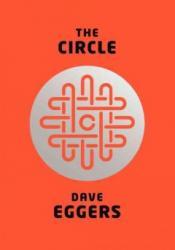
The Circle is an incredibly interesting book. The novel centers around Mae Holland, who sets off to work at The Circle after graduating from college. As she works through her career, Mae starts to question this highly acclaimed tech company and its Three Wise Men. Its main ideas discuss privacy, and specifically, how corporate run privacy standards lead into modern governmental systems. The ideas play into the fascinating world building around Mae Holland and her ideas of digital utopianism. The way she questions mob mentality behind the hive mind that can be global datafication is unique and provides for a great read. While the characters are somewhat lack luster, the novel makes up for it with its social construction and suspense. While there are some plot holes, the holistic concept is incredible. Overall, I would recommend this book to anyone interested in the digital world or dystopian-like settings.
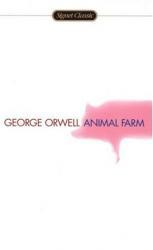
Animal Farm by George Orwell is a chilling tale of animals' uprising against humans to form an idyllic society. Without the rule of humans, animals expect equality, prosperity, and utopia. Over the course of this fable, however, the characters slowly devolve into new forms of oppression, greed, and violence against one another. Each chapter is more suspenseful than the last. The book is not entirely scary, but unsettling more than anything else. Orwell writes characters who are worth caring about, and antagonists that are easy to dislike.

Brave New World, written by Aldous Huxley, is a personal interpretation of society’s attitude towards technology. It takes place in a future, either dystopian or utopian, where technology reigns supreme, and humans are created in a lab. It offers commentary on where humanity’s values are placed, and where they should be placed. The characters have to choose whether or not conformity is the best option, and whether numbing the pain is better than understanding the suffering. Written in the 1930s, Huxley has a surprisingly modern style and understanding, and knowing that he was unsure of the future makes it an even more exciting book.
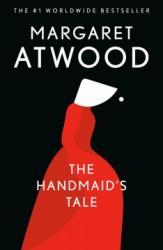
This novel followes the life of "Offred" who is part of the first wave of women during the Gilead regime. "Offred", whose real name is never revealed in the book, is a Handmaid whose sole responsiblity is to have children to sustain the rapidly declining Caucasion population. She tries to accept her life as a Handmaid, but is haunted by memories of the time before Gilead when she had a family and was free from the oppressive society she currently lives in.
I really liked how Atwood discloses minimal details about "Offred" which makes it clear that what is happening to her can happen to any woman. The novel is set in a utopian society, and it's very interesting to read the rationale behind the establishment of the Gilead regime and how sexism and anti-feminist retoric is a constantly looming problem in society. The novel is told through "Offred's" perspective, and personally, I felt she was a bland character, but her story itself was interesting. The book hangs off on a cliffhanger, and I'm definitely going to read the sequel and watch the Hulu adaption after!
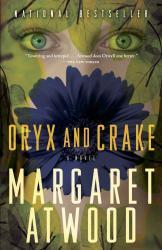
"Oryx and Crake" follows the character Snowman who is seemingly the last surviving human on Earth as he recounts the events that led up to his dystopian present. In this speculative fiction novel, animals are genetically modified to harvest organs for human transplant and spliced together to create fantastical hybrids like “rakunks” that are part racoon and part skunk. In addition, a new human breed is created to be physically flawless and void of normal human characteristics like envy or jealousy. This incredibly thought-provoking book challenges the reader to think about our present, and the choices we make that may lead us down a similar apocalyptic path. For example, it forces us to question how far are we willing to go with genetic modification. Although Atwood deals with serious topics in this book, she addresses them with such humor and over-the-top situations that the book is remarkably enjoyable. Furthermore, the characters of Oryx and Crake are some of my favorite literary characters.
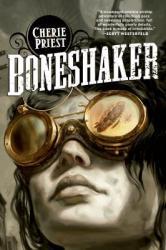
Boneshaker is the novel that kicks off Cherie Priest's "Clockwork Century" series - one of the most widely acclaimed book series in the Steampunk genre. Boneshaker explores an alternate history of the United States during the Civil War era. The plot centers around Briar Wilkes, the widow of the infamous Leviticus Blue - inventor of the titular boring machine that he was commissioned to create, in order to retrieve the vast veins of gold that are hiding under the thick ice of Alaska in the midst of the Klondike Gold Rush. During a devastating test run, the Boneshaker destroys the foundations of a good portion of Seattle, killing many, and releasing a dangerous gas that turns survivors into zombies. Leviticus disappears, and walls are erected around Seattle to contain the "blight" gas, and the "rotters". Briar does her best to survive and raise her son Zeke in the "Outskirts" of Seattle, suffering the prejudice shown to both of them, due to her husband's actions. Zeke is convinced that he can prove that his father was innocent, and that the destruction was purely unintentional, so he journeys beneath the wall, into Seattle to find the evidence he needs. Unlike Leviticus, Zeke's
grandfather (Maynard Wilkes) is revered as a folk hero, having lost his life in the exodus of Seattle, freeing inmates from the prison. Zeke feels this may help him if he runs into trouble within Seattle's walls. When Briar finds Zeke gone, and what his intentions are, she arms herself with Maynard's accoutrements and catches an air ship over the wall, to search for her son. Separately, Briar and Zeke find people who help to save them from being devoured by the "rotters", and attempt to aid them in their respective searches. Briar learns of the mysterious Dr. Minnericht who seems to run the
doomed city within the walls, and that many are convinced that he is in fact, Leviticus Blue (something she doesn't believe). When events draw Briar and Zeke both into Dr. Minnericht's stronghold, it seems the heart of the mystery
will be resolved with this fateful meeting.
Boneshaker is an epic foray into a dystopian alternate universe, and readers of various genres, are sure to find many wonders to be fascinated by in this version of Washington's famous "Emerald City".
In addition to physical book and audiobook formats, Boneshaker can also be downloaded and enjoyed at home, in either ebook or eaudiobook form.
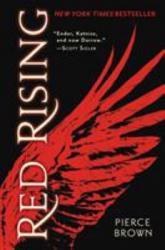
It is difficult to review a book like Red Rising without noting the heavy comparisons to The Hunger Games. Perhaps this speaks to the strength of The Hunger Games’ format, but there are almost too many parallels to ignore. Dystopian class-separated society? Check. A skilled lower-class individual who defies the odds? Check. Violence and a romantic subplot? Check and check. About the only difference between the two is that Red Rising takes place on Mars and over a few years instead of a week or so. Of course, it’s hard to tell the timespan since important details always seem to be missing from the first-person narrative.
If anything, I’d peg Red Rising as the gritty, over-violent, and over-sexualized version of The Hunger Games. If The Hunger Games appeals to girls and women, Red Rising should appeal to boys and men. A lot of the content in this book felt a bit over the top and unnecessary to the plot. Granted, the action was pretty well written, and at least a few of the characters seemed to have their distinct personality. I didn’t care for the more “aware” portions of the prose, as they seemed out of place in a “look how flowery I can write this simple scene” sense.
Another split from The Hunger Games comes in the form of the main character. While Katniss subjected herself to the brutality selflessly and sacrificially, Darrow was solely focused on a simple-minded goal: vengeance. Consequently, while I could understand Darrow’s motivation, it failed to have many nuances. It ended up being so repetitive that I rolled my eyes every time he brought up his past. Still, there were a few good twists and some great character development through this volume. There’s enough of setup at the end of this book that I’m curious where Golden Son takes the story.
A male-oriented knock-off of The Hunger Games, I give Red Rising 3.5 stars out of 5.
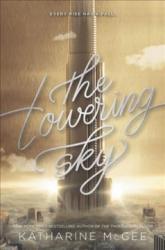
"The Towering Sky" by Katherine McGee tells the story of five teenagers in 2119. Living in a futuristic Manhattan tower in which your floor displays your power, a mystery/romance story is bred. This book was perfectly okay. The writing wasn't half bad, and the characters ,well half-baked, were not unrealistic or arrogant. However, as reading this book, the third and final of a series, without reading the first two, was extremely confusing. At first I had not realized that this book was part of a trilogy, and thought the writing was purposefully confusing. Though I don't know if this book would make more sense after reading the first two, the pacing was quite fast, though the plot moved slow, which created a strange vibe while reading. In general, I would not recommend this book. However, if you have read the first two and liked them, go ahead and give it a go.
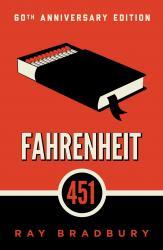
Fahrenheit 451 follows the story of a fireman, Guy Montag, who lives in a dystopian society. His job as a fireman is to locate all books around the city and burn them. Books are banned from any individual and is considered to be an inferior type of entertainment in comparison television, which are more supported by the public. As Montag continues to burn more books throughout his job over time, he deals with a variety of external factors that changes his brainwashed and disillusioned perspective to considering books and their significance to society. Being a firemen in this dystopian society, Montag must deal with a plethora of barriers that are blocking his way before he can truly understand the importance of books and to keep them.
Fahrenheit 451 is an intriguing book that takes a different approach in a dystopian society. Instead of implementing a militaristic and governmental style, Bradbury uses firemen which encapsulates a unique and captivating plot line. Fahrenheit 451 demonstrates a story that everyone can enjoy, especially for those who enjoy reading dystopian novels. Bradbury effectively relates character development of Montag to the series of events that occurs. This coherent relationship that virtually happens side-by-side further produces a sense of immersion for the reader.
Personally, I enjoyed Bradbury's Fahrenheit 451 novel. It is considered to be one of his best, and most iconic books that he has written to date. I highly recommend any average reader to consider reading Fahrenheit 451. The book is not too long, but it will still produce an immense amount of quality and satisfaction in the end.
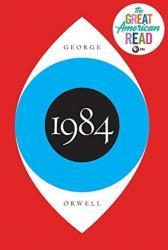
1984 introduces Winston Smith as the primary character. Smith is a middle-aged man that lives within a dystopian society in April of 1984. Being nearly 4 decades after World War II and just a couple of years after the apparent Atomic Wars, Smith lives through the totalitarian state of Oceania, where is activity is consistently surveyed. At this point, Smith attempts to relocate himself from this totalitarian state in order to put him back to normal behavior.
1984 is another novel involving a dystopia, however, it stands out for its strong character development. The premise of the story is heavily shown through the setting, as it demonstrates a controlled and tyrannical lifestyle.
Reviewer Grade: 11
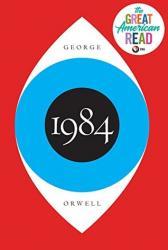
George Orwell depicts a horrific and terrifying alternate reality of 1984.
After years of war and conflict, the world is governed by three totalitarian regimes. The one that our main character, Winston Smith, resides under is ruled by the “party” and its leader “Big Brother”. The narrative follows Winston as he meets a mysterious woman named Julia, and the two begin to secretly rebel.
When I first started reading this book, I was a little bit disappointed. I had such high expectations (I think that was the problem) ,and it just didn’t live up to them. In the beginning, I thought Winston’s character was somewhat flat, and I didn’t feel a lot of sympathy for what he was living through. I thought Julia was unrealistic and a bit obnoxious. But in the second half of the book, my opinions had changed. The book becomes quite disturbing, and it makes you question what is actually real and what is just a fabrication of the party. It’s terrifying to say the least. Despite the fact that I enjoyed parts of this book, I have to rate it 3 stars because I wasn’t engaged in the first half of the narrative.
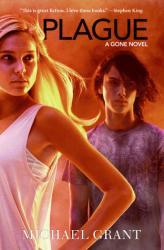
The thrilling Gone series continues with this fourth book, and Grant does not disappoint. This series has been one of my favorites and Plague is no exception. As a highly contagious, fatal illness spreads at an alarming rate and predatory insects terrorize Perdido Beach, morale continues to drop.
However, Sam, Astrid, and even Caine are determined to find a way to survive.
Everyone must make difficult decisions when it comes to saving themselves and those they love. Grant has written another phenomenal dystopian horror with suspense around every corner. I highly recommend this book to all high school aged readers.
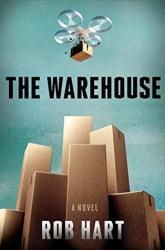
Imagine a world where Amazon controls pretty much everything (its really not hard to do, right?). They are the only large employer, and they have managed to put just about every other retail company out of business. Most folks who need employment have to head to their nearest Cloud center (Amazon = Cloud), apply, and hope against hope they are accepted. This is the fate of our two main protagonists, Zinnia and Paxton. Paxton wants more than anything to keep his head down until he can get patent money for his invention, a business that was going well until Cloud forced him out of business. Zinnia’s reasons for working at Cloud are a bit more inspired (it would depend on your perspective) as she’s been hired to try to take Cloud down from the inside. As Paxton and Zinnia are thrown together, both will come to realize that the Cloud was more insidious than they thought and they’ll have to sacrifice more than they’re comfortable with the bring it down.
I read this book right after watching John Oliver’s sendup of this sort of corporate culture and dang, Rob Hart did his research. His version of Amazon matches quite closely with what Oliver presents as the actual version of Amazon. I mean, it’s not great. Its really fascinating to read this near-future take on what Amazon and their ilk could mean for our country and economy as, like I said, this is a future that is really easy to imagine.
The book takes turn between Zinnia, Paxton and Gibson Wells’ (think Jeff Bezos) narratives. The characters are believable and likable enough (save Wells, but that’s obviously intentional) that I was not overly fond of one perspective over the other and never found myself racing through one perspective to get to a different one. Nonetheless, the book ends up being a quick read. It was sort of John Grisham meets Brave New World, and I was not mad about it. It’d make a fantastic movie, and clearly someone agrees with me as the author thanks Ron Howard and Bryan Glazer in his afterword.
If you are looking for a quick summer read that’ll make you think (but not too hard), this dystopian thriller will suit your needs. 4 stars – I really liked it!
Thanks to Crown and Netgalley for the free eARC which I received in exchange for an unbiased review. The Warehouse will be release on 20 August, and you can put your copy on hold today!
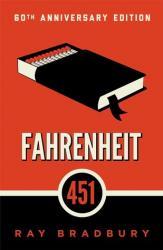
Fahrenheit 451 is a classic book that most people have heard the title of. With a similar style to Aldous Huxley’s “Brave New World”, Fahrenheit 451 takes the reader into a future where books are outlawed and the people of this alternate future are basically mindless robots. The people of this future have an intake of mindless media that even surpasses that of us currently. The main character is a firefighter but different from what we are used to. These firefighters fight with fire, burning houses and books if they are found since they are against the law. But soon after meeting a girl who does not conform to this society’s media consumption, the main character begins to rebel and go against the norm. Fahrenheit 451 is a spooky prediction of what the future will hold and after reading it, I can already see us as a society heading on this path. A truly incredible read, Fahrenheit 451 is a novel that cannot be missed.
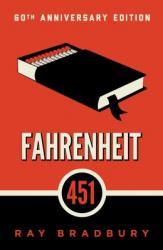
Guy Montag, a fireman who lives in the future where all books are banned, is required to burn them all. Guy then meets a strange girl who explains how books aren't so bad. He begins to spend more time with her and as more fire calls end up worse and worse, his point of view on books is eventually changed. Guy becomes a rebel to the fire company, as he tries to stand up to what is right. He later meets with an ex-professor who helps him generate a plan. Will he succeed? Read this book to find out. I would recommend this to anyone who wants to read about an alternate point of view on the future and readers who like technology as well as robots.
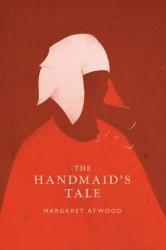
This book is old school dystopian literature. Atwood nails it. It's likely the best dystopian novel I have ever read.
Offred is a handmaid, a woman set aside for breeding purposes. Her only desire is to survive, but her memories push their way up into her mind. She had a husband and a child and they are gone. What broke my heart were the memories of her beloved child. It's so softly touched upon that it shows itself as a raw wound that she can barely handle.
Well told and powerful, I give this book 5 stars.
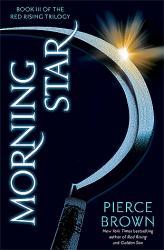
Darrow was captured and his identity revealed, the leader of the Sons of Ares was killed, and now the future of rebellion looks bleak. Darrow, now in a state of grief and failure, his body withering away as he waits for his execution, is rescued and given a second chance to realize Eo’s dream; to topple the corrupt society that stole everything from him. Now the leading force and face of the rebellion, Darrow has many struggles that await him in the final book in the Red Rising Trilogy. I greatly enjoyed this book due to how the many underlying plots are tied off in the end of the series as well as the resolution of each character’s internal struggles. Pierce Brown builds on many previous sub plots that as the reader you might forget, marvelously tying this book in with the rest of the series.